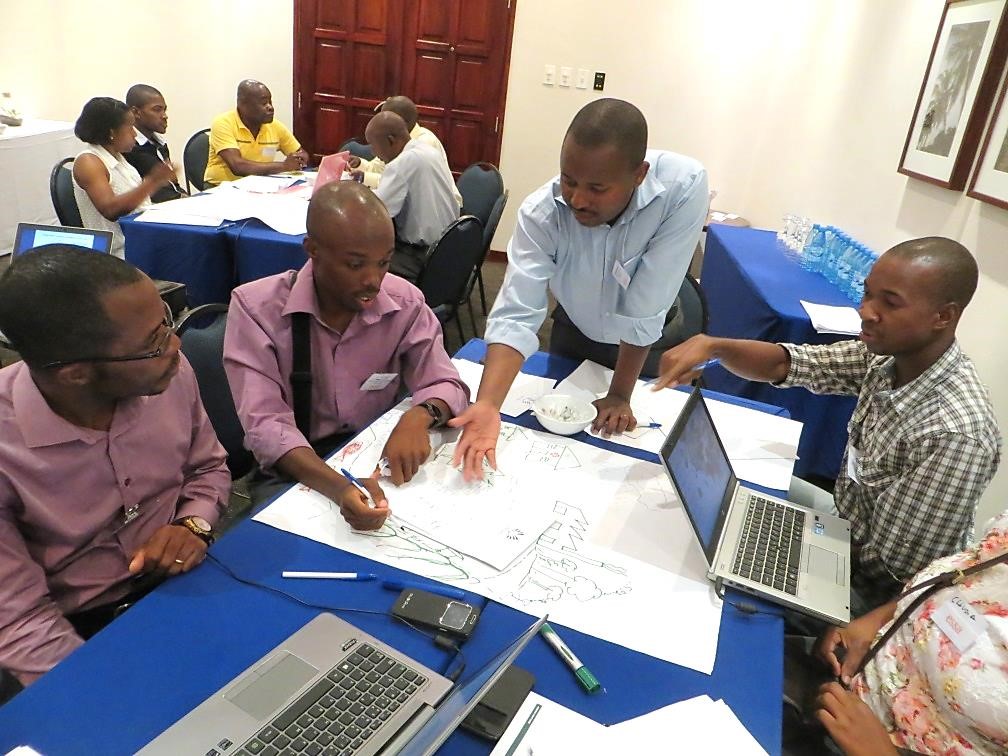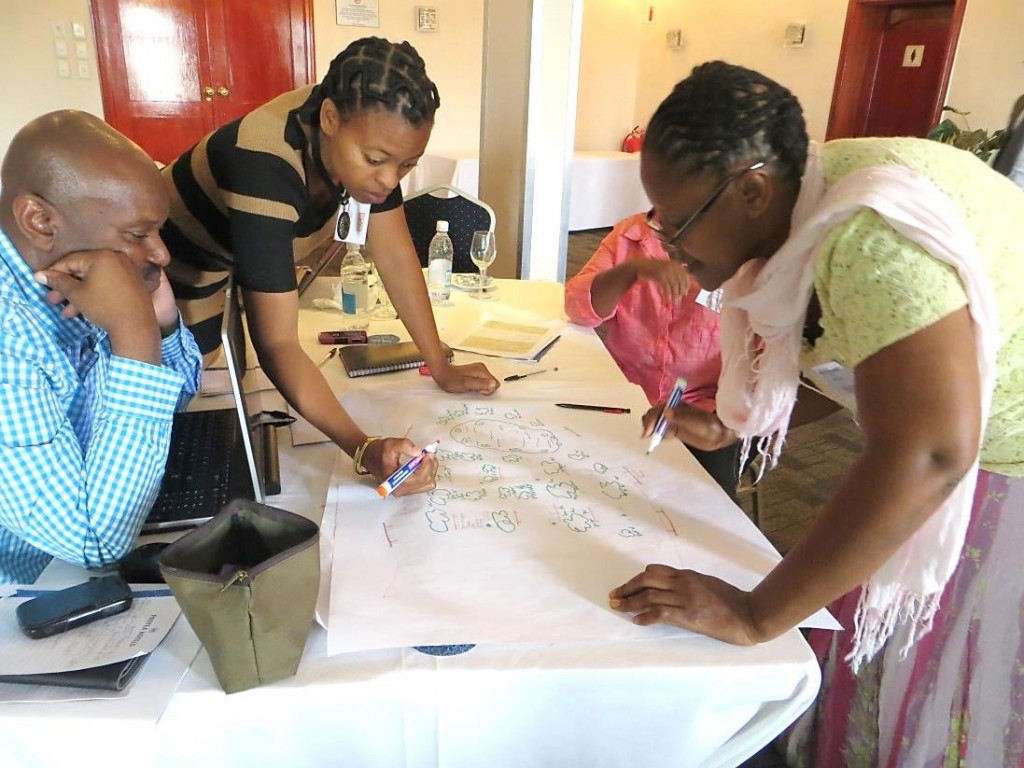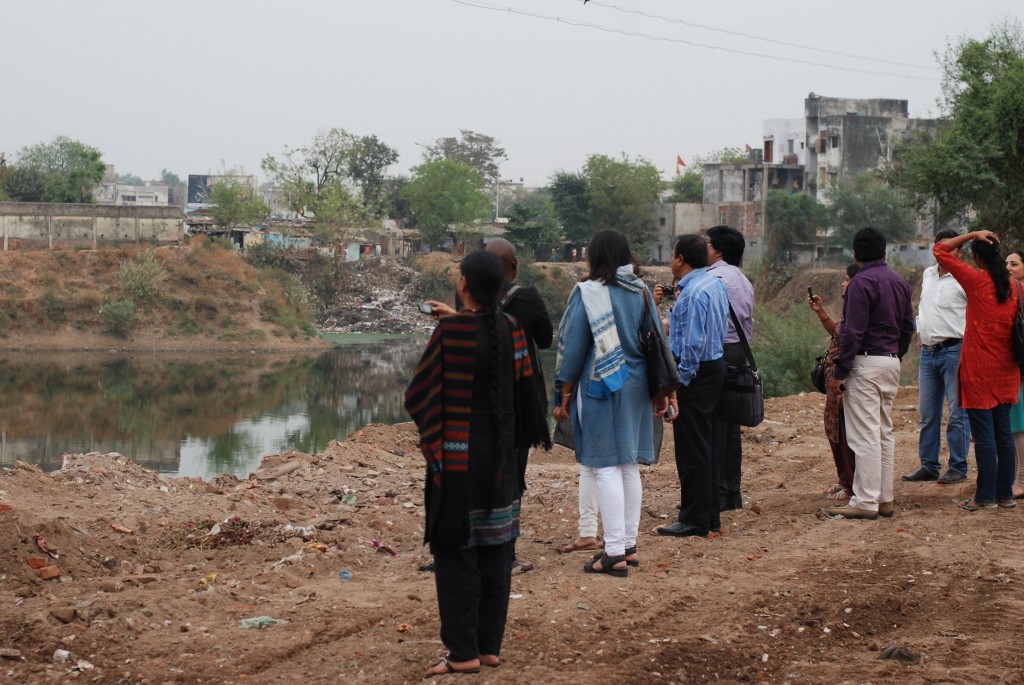Interview with Dr. Shepherd Urenje, Senior Programme Specialist, Swedish International Centre of Education for Sustainable Development
Dr. Shepherd Urenje, senior programme specialist at the Swedish International Centre of Education for Sustainable Development (SWEDESD), attended ISAP 2014 and was a featured speaker and panellist discussant in the parallel session on Advancing Education as a Goal for Sustainable Development. Against the backdrop of the UN World Conference of Education for Sustainable Development (ESD) that will be held in Nagoya, Japan in November 2014, this session aimed to discuss how to advance education as a key mechanism for achieving sustainable development and how aspects of quality education and transformative learning can be framed into the Global Action Programme on ESD that is expected to be launched at this conference. To this end, Dr. Urenje provided an engaging presentation on “Transformative Learning for Sustainable Lifestyles” and argued that experience-based education, critical reflection, reflective discourse, and applied learning and taking action are key elements to articulating a new paradigm in education aimed at transformative learning for sustainability which can be supported through an inquiry-based learning approach. This approach provides a cyclical learning process among multi-stakeholder teams that revolves around making inquiries, i.e. addressing questions that require reflection on real-world experiences and active experimentation to make changes on the ground, which finds equally relevant application in both formal and non-formal education settings.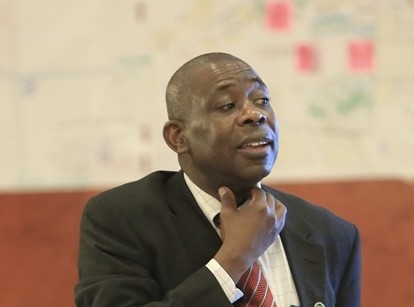
During ISAP, we were able to have an interview with Dr. Urenje to learn more about the activities of SWEDESD and their efforts to advance transitions towards low-carbon societies and sustainable lifestyles drawing on their expertise in education, capacity building and multi-stakeholder facilitation. SWEDESD is a centre based at Uppsala University, Gotland Campus in Sweden and is supported by the Swedish International Development Cooperation Agency (SIDA). It comprises a community of practitioners on ESD who serve as a focal point for a social network of practitioners and implementers on transformative and social learning processes. Together with partners in Sweden, Africa and Asia, SWEDESD is developing and implementing programs and activities related to (a) transformative teaching and learning on innovative ESD, (b) research and development on ESD and its components, and (c) communication and knowledge exchange on ESD practice and policy. With regards to supporting the movement towards low-carbon societies, this community of ESD practitioners and thinkers supports initiatives aimed at decarbonisation through:
1) Persuading communities and smaller businesses to adopt low carbon activities and actions,
2) Participating and supporting low carbon energy policy – including use of more locally produced energy mostly from renewable sources,
3) Encouraging increased innovation and investment in clean technologies and low- or zero-carbon energy sources,
4) Raising awareness on energy use reductions and energy efficiency as key drivers for the low-carbon transition.
“Blending the mentor/facilitator and participants/students into a learning partnership for mutual inquiry and transformation creates a fertile ground for multi-stakeholder collaboration towards achieving a low-carbon society”.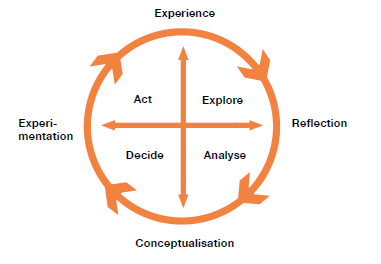
SWEDESD is actively involved in leading policy discussions with senior government officials as well as multi-stakeholder groups. They offer practical opportunities to create dialogue among diverse stakeholders and to communicate on transformative experiences in a manner that links them to practical policy opportunities at regional, national and institutional levels. In Southern Africa, SWEDESD has made use of “cluster workshops” to engage with the Southern African Development Community (SADC), the national ministries of education and the leaders in teacher education from 42 universities across 14 countries. The aim was to translate regional policy on ESD to national and subsequently to institutional levels. At present, the task for SWEDESD and partners in Africa is supporting institutions on exploring different ways by which they can implement the policies – this is being done through ESD Change Projects. In Sweden, through a collaborative initiative of the Swedish National Commission for UNESCO, the Global School, WWF Sweden and SWEDESD at Uppsala University, two ESD policy-related seminars were organized (3 June and 27 August 2014). The first seminar brought together all ESD practitioners in Sweden to hold dialogue on how to advance policy support for their work. The second seminar will now utilize the findings from the first seminar to work with politicians to formulate a new ESD strategy. The outcomes of the two seminars will serve to support the assessments and perspectives that Sweden will present at the UNESCO World Conference on Education for Sustainable Development in Nagoya in November 2014.
In closing, Dr. Urenje was asked to explain what he views as the key conditions necessary to create understanding and momentum for achieving transformation to sustainable, low-carbon societies? He explained that blending a mentor/facilitator and participant/learner approach (in contrast to a traditional teacher/student approach) to establish a partnership for mutual transformation can create fertile ground for multi-stakeholder collaboration and cooperation towards the achievement of a low-carbon society. This type of “relationship-based” learning process has the potential to foster mutual personal development for the overall benefit of the group or community. Through collaborative and inquiry-based learning, SWEDESD hopes to:
1) Persuade society and smaller businesses to view low carbon activities and actions favourably and to feel compelled to act (we call this agency),
2) Make it easier and more convenient for householders and smaller businesses to take up sustainable energy products, services, and solutions,
3) Ensure that society visibly supports low-carbon lifestyles through appropriate levels of commitment, leadership and exemplary actions.
